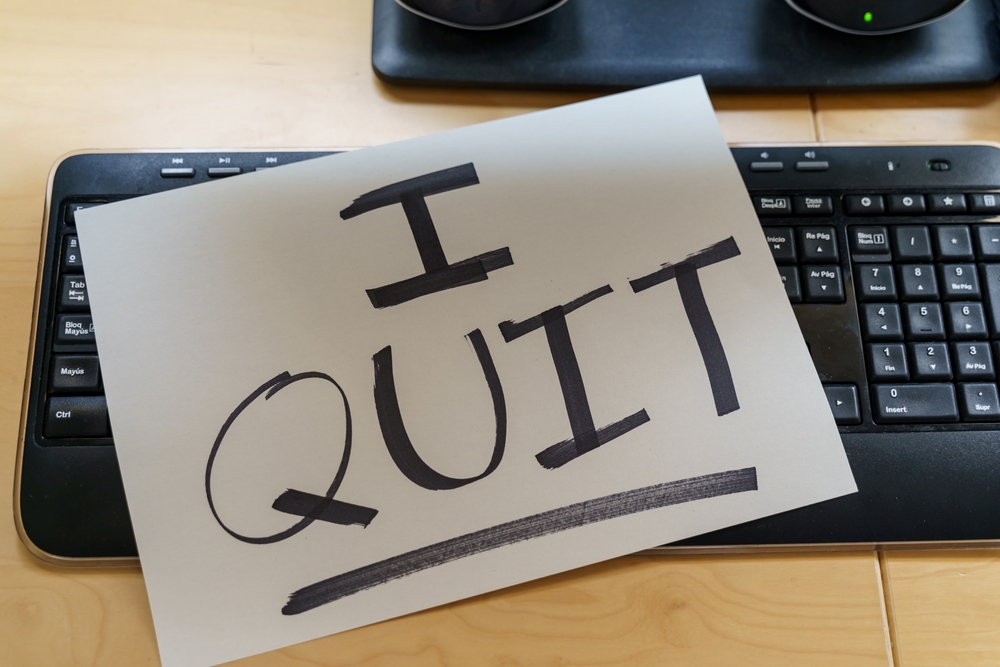Navigating Your Exit Strategically
Leaving a job is a major life transition that often causes anxiety. Many people change jobs several times throughout their career, so you’ll likely need to resign at some point. No matter your reason for leaving, it’s important to approach the resignation conversation with the right mindset
By approaching your resignation meeting in the right way, you can maintain positive relationships, maintain your reputation, and keep future opportunities open. Here’s how to navigate your resignation meeting successfully.
Understand the Significance of the Resignation Meeting
The resignation meeting marks the formal end of your association with your current manager and company. It’s a conversation that’s crucial for both you and your employer. During this meeting, your employer may request your feedback, which can help them improve the company culture for the future.
While it can be difficult, you should be direct and honest about your reasons for leaving. This allows for constructive feedback that can benefit the company.
Plan Your Timing and Approach
The best time to initiate the resignation conversation can vary depending on the nature of your work and your relationship with your employer. You should refer to your employment contract, offer letter, or employee handbook for guidance on the expected notice period.
Most employers will expect you to work through this notice period, but in some situations, they may request a longer period.
A resignation letter should include:
- Your final working date
- Outline of your commitment to facilitating a smooth transition
- Indication any remaining vacation days
It’s important to maintain a tone of gratitude in your resignation letter, even if your decision to leave is for negative reasons. This shows professionalism and helps to maintain a positive reputation.
For your resignation meeting, it’s generally best practice to meet face-to-face if possible. This shows respect for your leader and allows for a more personal and constructive conversation. However, if an in-person meeting isn’t feasible, a video call or phone call is a good alternative.
Avoid delivering your resignation via email, as it’s generally considered impolite and may even risk being overlooked in the communication shuffle. A direct and respectful approach in delivering the news is the most considerate way to proceed.
Gather the Necessary Information
Once you’ve drafted your resignation letter and scheduled your meeting, it’s time to gather any information or documents you’ll need to leave your job. This may include:
- Required forms, such as health insurance and pension forms.
- Unfinished work and documents to pass on to colleagues.
- Any company policies or procedures that you need to follow.
These steps will ensure a smooth and professional departure from your job
Anticipate Reactions and Prepare Responses
It’s important to understand that your resignation may evoke an emotional response from your manager. Even if you have a purely professional relationship, your boss will likely experience feelings of sadness, anger, disappointment, or confusion.
To prepare for this meeting, it’s helpful to consider how your manager might react and how you might respond. Anticipate questions about your reasons for leaving and be ready to share respectful feedback if appropriate.
The best way to prepare is to try to put yourself in your boss’s shoes and imagine how they might feel. They may feel caught off guard, disappointed, or worried about how your departure might impact the team or the company. They may even feel a bit rejected or like they failed in some way.
With that in mind, try to approach the conversation with empathy and understanding. Show respect for your manager and the company you’re leaving, and express your gratitude for the opportunity. Then, reassure them that you’ll do everything you can to ensure a smooth transition.
Be Prepared for a Counteroffer
Sometimes, if your employer is keen to keep you on the team, they might propose a counteroffer during your resignation meeting. They could promise extra benefits, a higher salary, or increased flexibility. In this case, it’s important to determine whether you’re willing to consider a counteroffer.
Think about your career goals and the reasons you’re leaving in the first place. Do the benefits offered address the problems you’re facing? If not, politely decline the offer, thank your boss, and reiterate your decision to leave the company.
Discuss Transition and Handover Plans
Your team members and new employees in your current company will need to absorb the work you’re leaving behind when you go. That’s why ensuring you have a plan to make the transition as simple as possible is important.
Ensuring your team members have everything they need to thrive in your absence will ensure your resignation doesn’t majorly impact business performance. It can also help you to maintain stronger relationships with your professional network.
Decide how to transfer knowledge, documents, accounts, and projects to other team members. Consider acting as a mentor to your replacement for the last couple of weeks, and ensure your employer can reach you if they encounter problems.
During the transitional period preserve positive relationships with your team, and set up strategies for keeping in touch. Maintaining these professional connections will help you to grow in the future.
Take the Right Approach to the Resignation Meeting
A resignation meeting can be stressful, but it’s important to approach it with professionalism and gratitude. Thank your managers and team members for their support and guidance, and preserve these important relationships.
Maintaining a positive attitude and following the steps in this guide will ensure you can confidently approach your resignation meeting and start the next stage of your life on good terms.
A good resignation meeting reflects well on you as an employee and leaves a positive lasting impression. Now that you’ve learned the best practices for resigning gracefully, you’re ready to move on to your next professional adventure





